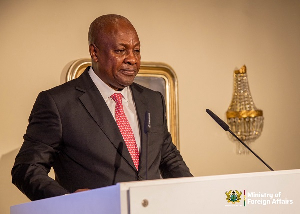Business News of Thursday, 2 April 2020
Source: goldstreetbusiness.com
Goldstreet Business Editorial: The fiscal game plan to navigate coronavirus
On Monday, the President Nana Akufo-Addo administration, through its Finance Minister, Ken Ofori-Atta, unveiled its proposals to navigate the treacherous waters generated by the outbreak of the global coronavirus pandemic in Ghana.
This is by far the biggest threat to Ghana’s economy since a large section of the global community declared Ghana a pariah nation in the wake of the 1979 revolution. But the current crisis is made far deeper by the fact that Ghana’s ongoing economic challenges are only the side effects of the biggest global health pandemic in human history, which means the country has to face up to unprecedented pressure on its public health system even as it fights to avoid an economic recession.
Under these unprecedented circumstances, this newspaper is highly impressed with the game plan proposed by government with regards to reigning in the economic impact of the pandemic. The computations by the Ministry of Finance suggest that Ghana is up against an array of virus created problems that stand to increase the hitherto projected GHc 18.9 billion fiscal deficit for 2020 to GHc30.2 billion which translates to an increase in the fiscal deficit from 4.7 percent of Gross Domestic Product to 7.8 percent.
To be sure, under the current circumstances, most Ghanaians would be willing to accept this and worry about the consequences on the size of the public debt – and the huge increase in debt servicing requirements – at some later time when some semblance of normalcy has returned.
However, accompanying such an inordinate fiscal debt would be an extra financing gap of some GHc11.4 billion. Closing that gap is a task that must be addressed now, and this is precisely what the Finance Minister has tried to do, by combining prudence and pragmatism, conventional wisdom and unconventional, outside of the box thinking that aim to cut the fiscal deficit down to 6.6 percent of GDP.
To be sure, we share the concerns of government’s critics as to the efficacy and even the fairness with which some of the key initiatives will be implemented. We worry about whether the Coronavirus Alleviation Programme funding will get to the right beneficiaries for instance.
However, we are totally in support of the fiscal foundation on which the various proposed initiatives are to be built.
Fiscal discipline purists, may agree with the Parliamentary minority that some of the initiatives are uncalled for, albeit for technical reasons rather than for reason of seeking political advantage. For instance, over the issue of using the Heritage Fund for current expenditure, rather than for the future as it was set up to be used for.
However, this newspaper holds the view that when that very future is directly threatened – as it is being threatened now by the COVID-19 outbreak – extreme flexibility should be allowed, as long as it is used prudently; simply put, it we do not secure the present there may be no future to prepare for.
To be sure there will be a high cost to pay going forward. For instance, deferment of debt payments now will mean bigger payments to be made in subsequent years. And the run down of the paltry fiscal buffers built up so far, through the reduction in the cap on the stabilization fund will leave us even more fragile than we are now.
However, these initiatives give us the chance to get through this unprecedented threat to our economy and polity. We have to take that chance.












